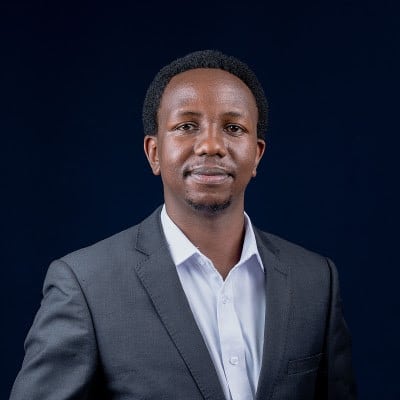
JOHANNESBURG South Africa, 27th May 2022 -/African Media Agency(AMA)/- The month of May is significant for the African continent because it is during this month that we celebrate Africa Day. Africa Day commemorates the formation of the African Union on May 25, 1963. It is a day when Africans celebrate the continent’s independence, freedom, and liberation from colonialism.
Reflecting on the significance of Africa Day, we have accomplished much in terms of colonial liberation, but much work remains to be done in achieving liberation from persistent challenges such as poverty, inequality, and unemployment that continue to plague the African continent.
Join our WhatsApp ChannelI am fortunate to work in the dynamic and vibrant technology space, supporting a wide range of businesses in various industries, including small and medium-sized enterprises (SMEs) across the African continent.
A common realisation in my travels and interactions with business leaders has been the enormous opportunities that the African continent possesses.
According to the United Nations, Africa has a population of 1.1 billion people, which is roughly equal to the combined populations of Europe and North America.
A resource-rich continent of youthful potential
Africa’s youthful population is expected to grow to 1.4 billion by the year 2030 and 2.1 billion by 2050. Roughly 70% of Africans are under the age of 30, compared to Europe where populations are aging and declining. This young population offers enormous opportunities for economic growth and innovation, but only if they are seized.
Other valuable resources are also waiting to be unlocked
United Nations data indicates that Africa has 30% of the world’s mineral resources and 65% of the planet’s arable agricultural land. South Africa, for example, holds 90% of the world’s platinum reserves, while Nigeria and Libya are among the top ten countries with the largest oil reserves.
Africa also has the largest cobalt reserves, with the Democratic Republic of Congo accounting for more than two-thirds of global supplies. As the world transitions to green energy sources, cobalt has become a strategic resource, particularly in the automotive and power generation industries.

In certain types of innovation, Africa also leads the world
According to a BCG study into mobile payment banking, Kenya and Ghana have the second and third highest mobile payment usage after China, demonstrating Africa’s enormous potential. Mobile transactions account for 87% of Kenya’s GDP and 82% in Ghana.
To put this in context, the African mobile payment market could have 850 million customers by 2025, which is 100 million more than Europe’s total population.
The big question is why, despite a large young population and mineral resource wealth, does Africa continue to trail the rest of the world in its development?
Tech-enabled SMEs could power the continent’s growth
One of the solutions to driving Africa’s economic development could lie in the small and medium enterprise (SME) sector. SMEs have the potential to support development by creating jobs and driving economic growth. The burning question is: why are African SMEs so slow to adopt and leverage technology?
African businesses – and SMEs in particular – face significant challenges that include lack of access to capital, specialised skills, raw materials, and markets. A lack of adoption of new technologies is causing several issues for Africa’s SME sector, ranging from poor planning, a lack of forecasting capability, and lack of capacity to leverage the efficiency gains of artificial intelligence and machine learning. These issues must be addressed if we are to unleash the next generation of African business success stories.
Although technology is not the only answer to the question of building world-class competitive African businesses, it is one of the most accessible solutions to many of the challenges that businesses face. Returning to the mobile payment banking example, this innovation was the result of a clever use of technology to address a fundamental challenge in both Kenya and Ghana: a lack of banking infrastructure.
Digital supply chains and business network solutions could unlock access to new markets for raw materials or finished products. Innovative use of technology – like what we’ve seen with mobile banking – could solve immediate challenges stunting SMEs’ growth and unlock a new wave of innovation across the continent.
Even though Africa continues to face numerous and complex challenges, there is no denying that the continent is brimming with possibilities. The time is now for African businesses to leverage technology as a strategic resource to fuel innovation and growth.
Click here to learn more about purpose-built solutions for small and medium-sized enterprises
Dumisani Moyo is the Marketing Director at SAP Africa. He is an avid scholar in technology, leadership, diversity, and sustainability. Dumi has extensive experience in technology and a Master of Philosophy Degree in Business Management with a specialization in Responsible Leadership.
Distributed by African Media Agency (AMA) on behalf of SAP Africa.
Visit the SAP News Center. Follow SAP on Twitter at @SAPNews.
About SAP
SAP’s strategy is to help every business run as an intelligent, sustainable enterprise. As a market leader in enterprise application software, we help companies of all sizes and in all industries run at their best: SAP customers generate 87% of total global commerce. Our machine learning, Internet of Things (IoT), and advanced analytics technologies help turn customers’ businesses into intelligent enterprises. SAP helps give people and organizations deep business insight and fosters collaboration that helps them stay ahead of their competition. We simplify technology for companies so they can consume our software the way they want – without disruption. Our end-to-end suite of applications and services enables business and public customers across 25 industries globally to operate profitably, adapt continuously, and make a difference. With a global network of customers, partners, employees, and thought leaders, SAP helps the world run better and improve people’s lives. For more information, visit www.sap.com.
# # #
This document contains forward-looking statements, which are predictions, projections, or other statements about future events. These statements are based on current expectations, forecasts, and assumptions that are subject to risks and uncertainties that could cause actual results and outcomes to materially differ. Additional information regarding these risks and uncertainties may be found in our filings with the Securities and Exchange Commission, including but not limited to the risk factors section of SAP’s 2021 Annual Report on Form 20-F.
© 2022 SAP SE. All rights reserved.
SAP and other SAP products and services mentioned herein as well as their respective logos are trademarks or registered trademarks of SAP SE in Germany and other countries. Please see https://www.sap.com/copyright for additional trademark information and notices.
Note to editors:
To preview and download broadcast-standard stock footage and press photos digitally, please visit www.sap.com/photos. On this platform, you can find high resolution material for your media channels. To view video stories on diverse topics, visit www.sap-tv.com. From this site, you can embed videos into your own Web pages, share video via email links, and subscribe to RSS feeds from SAP TV.
For customers interested in learning more about SAP products:
Global Customer Center: +49 180 534-34-24
For more information, press only:
Delia Sieff, SAP Africa, +27 (11) 235 6000, delia.sieff@sap.com
Source : African Media Agency (AMA)

















Follow Us